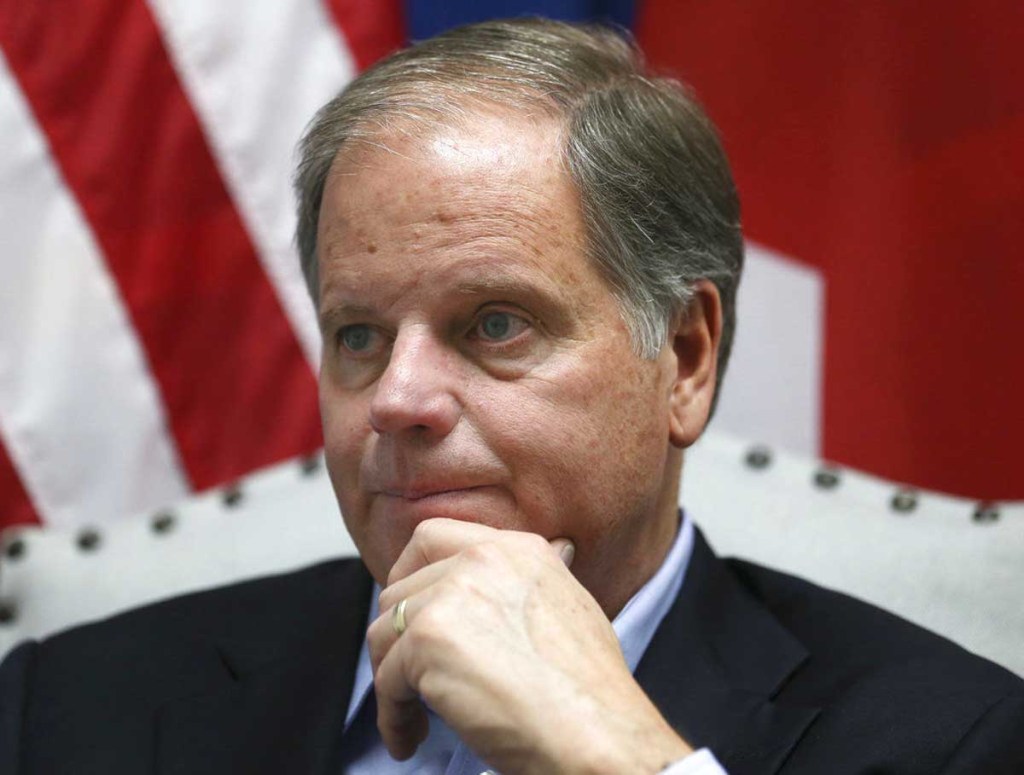Jones in bipartisan effort to halt tariff plan on automakers
Published 5:15 am Friday, June 8, 2018

- U.S. Sen. Doug Jones, D-Alabama
President Donald Trump’s call for tariffs on imported cars, trucks and auto parts is under close scrutiny in Alabama, which has enjoyed significant economic growth from automobile manufacturers and suppliers.
Trump had already targeted imported steel and aluminum before targeting auto imports. The president asked Commerce Secretary Wilbur Ross to investigate whether auto imports are a threat to national security. If that threat is determined to be valid, he would be able to initiate tariffs under Section 232 of the Trade Expansion Act of 1962.
Alabama is now the nation’s third largest exporter of automobiles in the United States, just behind Michigan and South Carolina, U.S. Sen. Doug Jones, D-Alabama, said in a Thursday call with Alabama news reporters.
“We’re at $7.75 billion in exports now and that will grow with Toyota-Mazda when it opens in north Alabama,” Jones said.
In terms of states with a larger share of auto industry jobs, Alabama has seen the fastest growth. Honda, Hyundai, Toyota and Mercedes-Benz build vehicles in Alabama, which has given rise through the years to a network of automotive suppliers, Global Trade Magazine noted.
Jones said concern about Trump’s tariffs is shared by Democrats and Republicans alike. The Alabama senator has joined with Sen. Lamar Alexander, R-Tennessee, and others in Congress to write the Commerce about their concerns.
“This is a growing sector of the economy in Alabama and other areas of the country,” Jones said. “The auto industry has become a leading employer in the state and it has pushed efforts in education and workforce preparedness, which are good trends that we want to continue.”
Jones said he recently was pleased when the president recognized growth in the auto industry, particularly in Alabama which landed the Toyota-Mazda plant, representing a $1.6 billion investment and 4,000 jobs.
“But now we have the proposal for tariffs,” Jones said. “We’re doing well in that industry and there’s a lot of concern among manufacturers in Alabama and elsewhere and what this will do to consumer prices and employment.”
Much of the concern is focused on auto parts. While manufacturing is thriving in Alabama, suppliers that hire locally but rely on imports of parts could be affected, he said.
Cullman County has several major auto industry suppliers, including Rehau, Topre and Yutaka. The companies have a long history in Cullman County, which has the state’s second lowest unemployment rate. Those companies employ hundreds of area residents and have expanded several times in the thriving Alabama auto manufacturing environment.
“I’ve been hesitant about criticism, but this has to be watched closely,” Jones said. “Every time the tariffs are brought up there’s a negative reaction in the market and it freezes the auto industry here because of the uncertainty of what it may mean for them. Even though the automobiles are assembled here, a lot of parts come from overseas. Any increase imposed on the parent company will impact manufacturing here and makes its way to the consumer.”
John Bozzella, CEO of Global Automakers, which represents foreign automakers doing business in the U.S. and some domestic parts suppliers, has criticized Trump’s call for tariffs. He recently noted that 13 companies in the United States produced nearly 12 million cars and trucks in the U.S. in 2017, which. He also said imposing tariffs will lead to fewer choices and higher prices for consumers.
David Palmer may be contacted 256-734-2131, ext. 116.





